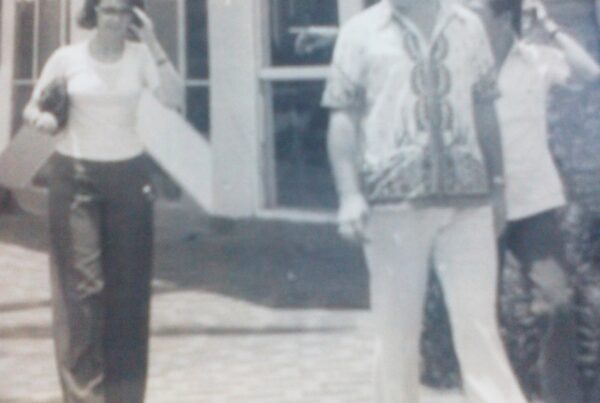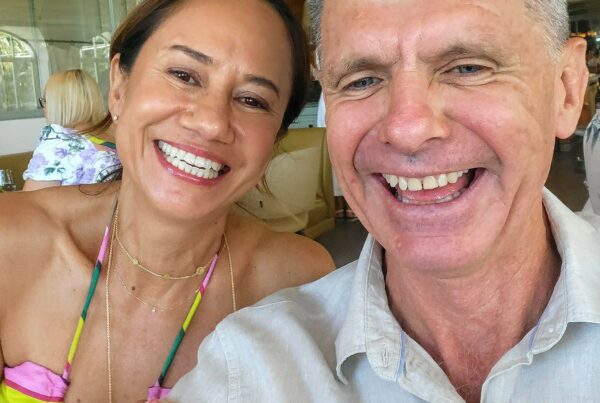The ‘leadership myth’ is sugar coated elitism
When I see another book on leadership or another self appointed ‘leader’ lecturing on leadership I groan.
The ‘Leadership movement’ is largely a myth and a padded out con job to get your money.
Would you like to know how to be a person of influence in 3 easy steps and for no $$?
- Treat people with kindness.
- Don’t be a d@#k head.
- Don’t follow the pack.
There all done.
Discussion over.
Go forth on your own path and do good works.
Ok, the three points above are simplistic and 2 and 3 are framed in the negative but my friend Graham Long says that a positive intention framed in the negative may illicit an immediate positive reaction, but here is the big if!
If that person is so inclined!
And I say that because most career minded people in the Western world have been conned by propaganda to believe the ‘leadership myth’ that is still peddled in our training rooms, leadership think tanks and self help books.
And from all the leadership and influence books I have read over the years, I can honestly say most of it is manipulative, regurgitated dribble.
These leadership books appeal to high ego and low self esteem.
And I have read most of them because I was one of the lemmings sitting in conference halls listening to ageing American industrialists or trick shot, circus acts telling the enraptured masses how they made their first million at 21 years of age.
But I knew their black shoes and white teeth were too shiny.
Until I awoke.
Woke up from the Western induced fog of ‘follow the celebrated leader’ and decided to follow my own path.
The path I chose was paved by those I wanted to emulate.
Not loud, shiny sales men but humble, vulnerable human beings.
When I was struggling with my drinking, a man I learned to respect said to me;
‘David if you were wrong about your drinking you are probably wrong about everything else!’
And can you guess how I reacted?
I was pissed off!
And why was I annoyed?
This gent had put a question mark over every value I held dear, and once I stepped out of my resentment and fear I realized he was correct.
And it took another few years of mistakes to learn my lesson.
He was firmly but gently saying to me that it is not enough to just stop drinking if you want to be of value and make amends to your loved ones.
You have to make the next step and change.
And the scary part of that next step is that the decision is made on the edge of a very high cliff.
It can be daunting!
You do not know when you will hit the bottom, and you know the end will be painful and sudden but you still have to step off and take a risk.
There are a few lines in the prologue of my book One Day One Life that have resonated strongly with some of my readers:
“Like a child who refuses to ride the roller coaster, too scared to take the loop, those that fall are forever seen as less than, even though the plunge may be the braver deed.
At least when you are precariously perched on the cliff, the position poignantly portrays the risk. The risk that you were tired of being the same.
The same as everyone else.”
Falling in the success driven Western world is seen as failure, by the crowd and the individual.
But failure is a very effective way of showing us that the highway is not the only way.
Highways are superbly paved and lit but the owners charge a toll and you are in a queue with everyone else.
Just like leadership courses and seminars.
Just like corporate leadership groups.
Once the hype wears off and the lights are turned off you feel a bit cheap and used.
Just like I did after a big night on the grog.
Or after eating KFC.
Dirty, dirty bird.
What I noticed in the finance world, was that most of the executive group were merely survivors.
Or system jockeys.
As a collective, they were not the pick of the crop.
Just the last crop standing after repeated, self-generated storms.
Generally great people.
Decent human beings.
But not inspiring mavericks.
Survivors.
And resilience is an admiral attribute but an inspiring human being also needs to be spiritual and generate hope.
For self and others.
And spirituality and hope are not words you would normally hear uttered in a Sydney boardroom.
It’s like when I went and played paint ball in a corporate, team building exercise.
The winners were those that hid the longest not the ones who took risks and exposed themselves.
The risk takers and the action figures were shot dead!
Sort of like the corporate leadership model.
See the problem?
The corporate leadership model encourages low risk for the leader and high collateral damage for the team.
Low impact for the leader and stifling KPI’s for the group.
Vanilla on top and blood red on the bottom.
And vanilla is great ice cream but a lousy state for a so called leader.
No direction and mentoring from the so called leader and no spirituality and hope for the team.
The ‘leadership myth’ is sugar coated elitism.
Let’s expand on the 3 easy steps of influence at the start of the blog.
- Treat people with kindness –
Have a read of this quote from “How to Win Friends and Influence People” written by Dale Carnegie;
“Any fool can criticize, condemn and complain – and most fools do. But it takes character and self-control to be understanding and forgiving. ‘A great man shows his greatness,’ said Carlyle, ‘by the way he treats little men.’” Boom!! This book was published in 1936 and is all about treating people with kindness, respect and equality.
2. Don’t be a d@#k head.
One of the elite sporting clubs in Australia is the Sydney Swans who play in the AFL competition. Under the mentoring of Paul Roos they had a ‘no d#@kheads policy’ that kept a lid on hype and produced humble players that quietly went about their business. This formula produced a long period of sustained success, picking up a premiership, another Grand Final and eight finals appearances in nine years.
No fuss. No scandals. The Swans have a culture the envy of sporting clubs across the country without any crap corporate statement or pumped up leadership model.
3. Don’t follow the pack.
Now doesn’t this go against everything we were taught as children.
Don’t be a follower.
Be a disruptor!
Question everything.
Challenge your value system and as long as you come from a place of kindness and service, selfishly follow your passion and purpose.
And if you don’t know your passion and purpose go and find it.
Generally your passion is what made you jump out of bed as a teenager.
What excited you before the drudgery and routine of early adulthood weighed you down into a lemming.
Yes, you can make a career out of writing, music, drawing, videos, art, food, sport, even sleeping!
Teaching people how to sleep is a highly sort after skill.
So don’t drag around an anchor.
Fill your sail and chase your dreams.
And forget about studying leadership.
It’s trickery.
And money and success will follow – if that is what you want.
More on passion and purpose to come!
Need to read more?
Buy a copy of One Day, One Life: One Day One Life




